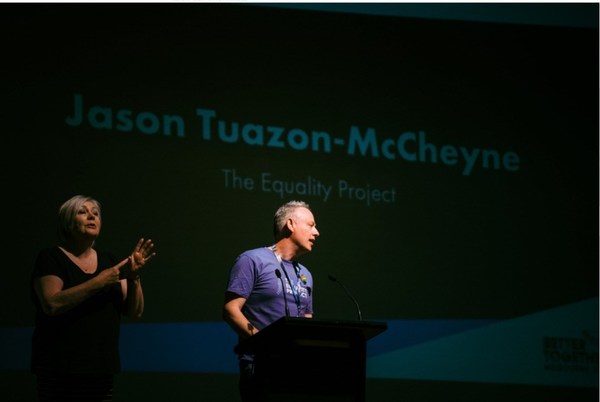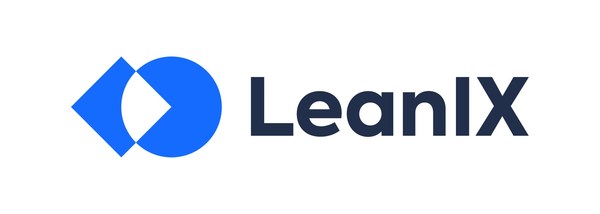Fourth quarter and fiscal year net revenues increased by 34.7% and 38.9% year-over-year respectively
Fourth quarter GAAP net income and non-GAAP net income were RMB31.8 million and RMB38.6 million respectively
Fiscal year 2020 GAAP net income and non-GAAP net income were RMB147.0 million and RMB173.7 million respectively
BEIJING, March 5, 2021 — China Online Education Group ("51Talk" or the "Company") (NYSE:COE), a leading online education platform in China, with core expertise in English education, announced its unaudited financial results for the fourth quarter and fiscal year ended December 31, 2020.
Fourth Quarter 2020 Financial and Operating Highlights
- Net revenues were RMB535.1 million (US$82.0 million), a 34.7% increase from RMB397.2 million for the fourth quarter of 2019.
- Gross margin was 72.7%, compared with 72.1% for the fourth quarter of 2019.
- GAAP net income was RMB31.8 million, compared with GAAP net income RMB0.8 million for the fourth quarter of 2019.
- Non-GAAP net income[1] was RMB38.6 million, compared with non-GAAP net income RMB4.5 million for the fourth quarter of 2019.
- Operating cash inflow was RMB188.5 million (US$28.9 million), compared with RMB167.1 million cash inflow for the fourth quarter of 2019.
- Cash, cash equivalents, time deposits and short-term investments balance reached RMB1,727.7 million (US$264.8 million) as of December 31, 2020.
- Gross billings[2] were RMB720.9 million (US$110.5 million), a 23.8% increase from RMB582.3 million for the fourth quarter of 2019.
Fiscal Year 2020 Financial and Operating Highlights
- Net revenues were RMB2,054.1 million (US$314.8 million), a 38.9% increase from RMB1,478.5 million for the fiscal year 2019.
- Gross margin was 71.7%, compared with 70.2% for the fiscal year 2019.
- GAAP net income was RMB147.0 million(US$22.5 million), compared with GAAP net loss RMB104.4 million for the fiscal year 2019.
- Non-GAAP net income was RMB173.7 million (US$26.6 million), compared with non-GAAP net loss RMB87.7 million for the fiscal year 2019.
- Operating cash inflow was RMB719.3 million (US$110.2 million), compared with RMB397.9 million cash inflow for the fiscal year 2019.
- Gross billings were RMB2,722.6 million (US$417.3 million), a 30.9% increase from RMB2,080.6 million for the fiscal year 2019.
|
[1] For more information on non-GAAP financial measures, please see the section of "Use of Non-GAAP Financial Measures" and the table captioned "Reconciliation of Non-GAAP Measures to the Most Comparable GAAP Measures" set forth in this press release.
|
|
[2] Gross billings for a specific period, which is one of the Company’s key operating data, is defined as the total amount of cash received for the sale of course packages and services in such period, net of the total amount of refunds in such period.
|
Key Financial and Operating Data
|
For the three months ended
|
|
For the year ended
|
|
Dec. 31,
|
|
Dec. 31,
|
|
Y-o-Y
|
|
Dec. 31,
|
|
Dec. 31,
|
|
Y-o-Y
|
|
2019
|
|
2020
|
|
Change
|
|
2019
|
|
2020
|
|
Change
|
|
|
|
|
|
|
|
|
|
|
|
|
|
Net Revenues (in RMB millions)
|
397.2
|
|
535.1
|
|
34.7%
|
|
1478.5
|
|
2,054.1
|
|
38.9%
|
|
K-12 mass-market one-on-one
|
320.0
|
|
479.4
|
|
49.8%
|
|
1131.3
|
|
1,773.2
|
|
56.7%
|
|
K-12 small class offering
|
26.4
|
|
20.5
|
|
(22.5%)
|
|
112.8
|
|
97.1
|
|
(13.9%)
|
|
Adult offering
|
38.8
|
|
27.9
|
|
(28.1%)
|
|
168.5
|
|
130.8
|
|
(22.4%)
|
|
K-12 American Academy one-on-one
|
12.0
|
|
7.3
|
|
(39.2%)
|
|
65.9
|
|
53.0
|
|
(19.6%)
|
|
|
|
|
|
|
|
|
|
|
|
|
|
Gross Billings (in RMB millions)
|
582.3
|
|
720.9
|
|
23.8%
|
|
2,080.6
|
|
2,722.6
|
|
30.9%
|
|
K-12 mass-market one-on-one
|
501.7
|
|
667.8
|
|
33.1%
|
|
1,814.5
|
|
2,536.0
|
|
39.8%
|
|
K-12 small class offering
|
40.0
|
|
26.4
|
|
(34.0%)
|
|
96.6
|
|
90.9
|
|
(5.9%)
|
|
Adult offering
|
34.5
|
|
25.8
|
|
(25.2%)
|
|
131.3
|
|
91.7
|
|
(30.2%)
|
|
K-12 American Academy one-on-one
|
6.1
|
|
0.9
|
|
(85.2%)
|
|
38.2
|
|
4.0
|
|
(89.5%)
|
|
Active students[3] (in thousands)
|
257.2
|
|
353.8
|
|
37.6%
|
|
|
|
|
|
|
|
|
|
|
|
|
|
|
|
|
|
|
|
[3] An "active student" for a specified period refers to a student who booked at least one paid lesson, excluding those students who only
attended paid live broadcasting lessons or trial lessons. A student taking both one-on-one and small class lessons is counted as one
active student.
|
"The growth momentum from the beginning of 2020 continued into the fourth quarter," said Mr. Jack Jiajia Huang, Founder, Chairman and Chief Executive Officer of 51Talk. "Reflecting solid strategic execution in our online K-12 English mass-market offerings, fourth quarter net revenues grew 34.7% year-over-year to reach RMB535.1 million. We also recorded historically high operating cash flow of RMB188.5 million. In addition, the number of new paying students grew over 70.0% year-over-year driven by our effective curriculum and improving service quality, while our active students reached 353,800, up 37.6% compared with the same period in 2019.
"Despite 2020 presenting an array of unforeseen challenges, our strong pre-established foundational groundwork allowed us to not only manage this tumultuous period but in fact benefit from the shifting environment as we took advantage of new opportunities. Full year net revenues grew 38.9% to RMB2.1 billion. 2020 operating cash flow rose 80.8% to reach a historical high of RMB719.3 million, compared with RMB397.9 million in 2019, further strengthening our financial position for future growth. We also witnessed remarkable growth in new paying students which increased 60.0% year-over-year.
"We are also very excited about our recent acquisition of GKid’s product portfolio and industry-leading AI technologies. GKid offers innovative AI-driven online English courses through highly interactive animation and picture books for children. With product offerings intended for those between the ages of three and eight, this acquisition both extends our addressable market and broadens our product and curriculum portfolio. We foresee many potential collaboration and integration opportunities between our platform and GKid’s products and industry-leading AI technologies, leading to both new products and product improvements which will better serve our students.
"As we head further into 2021, we are focusing on user growth and enhanced brand promotions to drive market share expansion. To better attract and retain users, we will continue optimizing learning experiences through upgraded product offerings and an enriched curriculum mix. We are developing innovative AI-powered robotic tutors to help students review core knowledge points with the aim of enhancing overall learning efficiency. To make our courses more interesting and engaging to young children, we are also integrating more interactive features into our textbooks. Additionally, we are diversifying our curriculum portfolio in order to provide a holistic learning experience, through investing in R&D, upgrading services to students, and expanding our teacher operations. Finally, we target to further increase our branding and marketing efforts to heighten brand awareness as we enter the next phase of growth.
"We are also delighted to have successfully delivered over 50 million one-on-one online English lessons, including free trials, between November 2019 and December 2020 – a rapid increase that took our cumulative deliveries since our inception in 2011 to more than 150 million, and a strong testament to our accelerating growth trajectory. As 51Talk continues to grow, we are confident our balanced growth strategy will continue to yield solid value for our stakeholders," concluded Mr. Huang.
"I’m extremely proud that we concluded a turbulent 2020 with solid operating and financial results, evidenced by sustained revenue growth and the first profitable year in our company history," said Mr. Min Xu, Chief Financial Officer of 51Talk. "We recorded Non-GAAP net income of RMB173.7 million for 2020, compared to a Non-GAAP net loss of RMB87.7 million in 2019. In 2021, investment will be channeled towards the development of our curriculum, technology and brand as we look to capitalize on market dynamics, drive user growth and achieve the leading market position."
Fourth Quarter 2020 Financial Results
Net Revenues
Net revenues for the fourth quarter of 2020 were RMB535.1 million (US$82.0 million), a 34.7% increase from RMB397.2 million for the same quarter last year. The increase was primarily attributed to an increase in the number of active students. The number of active students in the fourth quarter of 2020 was 353,800, a 37.6% increase from 257,200 for the same quarter last year.
Net revenues from one-on-one offerings for the fourth quarter of 2020 were RMB514.6 million (US$78.9 million), a 38.8% increase from RMB370.8 million for the same quarter last year. Net revenues from small class offering for the fourth quarter of 2020 were RMB20.5 million (US$3.1 million), a 22.5% decrease from RMB 26.4 million for the same quarter last year.
Cost of Revenues
Cost of revenues for the fourth quarter of 2020 was RMB146.1 million (US$22.4 million), a 32.1% increase from RMB110.6 million for the same quarter last year. The increase was primarily driven by an increase in total service fees paid to teachers, mainly due to an increased number of paid lessons.
As part of Chinese government’s effort to ease the burden of businesses affected by the coronavirus (COVID-19) outbreak, the Ministry of Human Resources and Social Security, the Ministry of Finance and the State Taxation Administration, temporarily reduced and exempted employer obligation on social security contributions from February 2020. The impact of coronavirus policies on cost of revenues was RMB0.2 million in the fourth quarter. Excluding the impact, total cost of revenues for the fourth quarter would have been RMB146.3 million (US$22.4 million), representing a 32.3% year-over-year increase.
Cost of revenues of one-on-one offerings for the fourth quarter of 2020 was RMB137.8 million (US$21.1 million), a 40.4% increase from RMB98.2 million for the same quarter last year. Cost of revenues of small class offering for the fourth quarter of 2020 was RMB8.3 million (US$1.3 million), a 33.5% decrease from RMB12.5 million for the same quarter last year.
Gross Profit and Gross Margin
Gross profit for the fourth quarter of 2020 was RMB388.9 million (US$59.6 million), a 35.8% increase from RMB286.5 million for the same quarter last year.
Gross margin for the fourth quarter of 2020 was 72.7%, compared with 72.1% for the same quarter last year.
Excluding the positive impact of the coronavirus related social security contribution exemption, gross profit and gross margin for the fourth quarter would have been RMB388.7 million (US$59.6 million) and 72.6% respectively.
Gross margin for one-on-one offerings for the fourth quarter of 2020 was 73.2%, compared with 73.5% for the same quarter last year. 51Talk’s small class offering gross margin for the fourth quarter of 2020 was 59.5%, compared with 52.7% for the fourth quarter of 2019. The increase was mainly due to an optimization of the small class offering portfolio that reduced the number of lower margined products.
Operating Expenses
Total operating expenses for the fourth quarter of 2020 were RMB385.7 million (US$59.1 million), an 33.7% increase from RMB288.4 million for the same quarter last year. The increase was mainly due to an increase in sales and marketing expenses.
Sales and marketing expenses for the fourth quarter of 2020 were RMB284.5 million (US$43.6 million), a 40.5% increase from RMB202.5 million for the same quarter last year. The increase was mainly due to higher sales personnel costs related to increases in the number of sales and marketing personnel and higher marketing and branding expenses. Excluding share-based compensation expenses, non-GAAP sales and marketing expenses for the fourth quarter of 2020 were RMB282.6 million (US$43.3 million), a 40.2% increase from RMB201.6 million for the same quarter last year. Non-GAAP sales and marketing expenses, excluding branding expenses, were 33.6% of the gross billings for the fourth quarter of 2020, compared with 30.4% for the same quarter last year. The impact of coronavirus policy related the exemption of employer obligation on social security contributions on sales and marketing expense was RMB5.3 million in the fourth quarter. Excluding the impact, sales and marketing expenses for the fourth quarter would have been RMB289.8 million (US$44.4 million), representing a 43.1% year-over-year increase.
Product development expenses for the fourth quarter of 2020 were RMB44.6 million (US$6.8 million), a 20.3% increase from RMB37.0 million for the same quarter last year. The increase was primarily due to higher product development personnel costs related to increases in both the number of personnel and average salary. Excluding share-based compensation expenses, non-GAAP product development expenses for the fourth quarter of 2020 were RMB43.3 million (US$6.6 million), a 17.6% increase from RMB36.8 million for the same quarter last year. The impact of coronavirus policy related to the exemption of employer obligation on social security contributions on product development expense was RMB1.5 million in the fourth quarter. Excluding the impact, product development expense for the fourth quarter would have been RMB46.1 million (US$7.1 million), representing a 24.6% year-over-year increase.
General and administrative expenses for the fourth quarter of 2020 were RMB56.6 million (US$8.7 million), a 15.8% increase from RMB48.9 million for the same quarter last year. The increase was primarily due to higher general and administrative personnel costs related to increases in both the number of personnel and average salary. Excluding share-based compensation expenses, non-GAAP general and administrative expenses for the fourth quarter of 2020 were RMB53.0 million (US$8.1 million), a 14.4% increase from RMB46.3 million for the same quarter last year. The impact of coronavirus policy related to the exemption of employer obligation on social security contributions on general and administrative expense was RMB1.2 million in the fourth quarter. Excluding the impact, general and administrative expense for the fourth quarter would have been RMB57.8 million (US$8.9 million), representing a 18.2% year-over-year increase.
Other income
As part of Chinese government’s effort to ease the burden of businesses affected by the coronavirus
(COVID-19) outbreak, the State Taxation Administration (STA) exempted a wide range of consumer services from value added tax (VAT) from January 2020. The income obtained by taxpayers from providing essential services shall be exempted from VAT. The favorable impact of coronavirus relief policies was RMB7.5 million in the fourth quarter.
On September 30, 2019, Ministry of Finance and the State Taxation Administration announced that from October 1, 2019 to December 31, 2021, the taxpayers engaging in the provision of essential services are allowed to deduct an extra 15% of the deductible input value-added tax for the current period from the payable value-added tax. The impact of the policy of additional value-added tax credit for the income generated by the essential services provided by enterprises was RMB0.3 million in the fourth quarter.
Income/(loss) from Operations
Operating income for the fourth quarter of 2020 was RMB11.0 million (US$1.7 million), compared with loss from operations of RMB1.9 million for the same quarter last year. Operating margin for the fourth quarter was 2.1%, compared with operating margin of negative 0.5% for the same quarter last year.
Non-GAAP operating income for the fourth quarter of 2020 was RMB17.8 million (US$2.7 million), compared with non-GAAP operating income of RMB1.8 million for the same quarter last year. Non-GAAP operating margin for the fourth quarter was 3.3%, compared with non-GAAP operating margin of 0.5% for the same quarter last year.
The favorable impact of coronavirus relief policies was RMB15.7 million in the fourth quarter. Excluding the favorable impact, loss from operations and non-GAAP operating income for the fourth quarter would have been RMB4.7 million (US$0.7 million) and RMB2.1 million (US$0.3 million) respectively, representing negative 0.9% GAAP operating margin and 0.4% non-GAAP operating margin.
Net income
Net income for the fourth quarter of 2020 was RMB31.8 million (US$4.9 million), compared with net income of RMB 0.8 million for the same quarter last year. Net margin for the fourth quarter was 5.9%, compared with net margin of 0.2% for the same quarter last year.
Non-GAAP net income for the fourth quarter of 2020 was RMB38.6 million (US$5.9 million), compared with non-GAAP net income of RMB4.5 million for the same quarter last year. Non-GAAP net margin for the fourth quarter was 7.2%, compared with non-GAAP net margin of 1.1% for the same quarter last year.
The favorable impact of coronavirus relief policies was RMB15.7 million in the fourth quarter. Excluding the favorable impact, net income and non-GAAP net income for the fourth quarter would have been RMB16.1 million (US$2.5 million) and RMB22.9 million (US$3.5 million) respectively, representing net margin of 3.0% and 4.3% respectively.
Income tax benefits for the fourth quarter of 2020 were RMB8.9 million, including the releasing of valuation allowance for deferred tax assets of RMB9.7 million.
Basic net income per American depositary share ("ADS") attributable to ordinary shareholders for the fourth quarter of 2020 was RMB1.48 (US$0.23), compared with basic net income per ADS of RMB0.04 for the same quarter last year. Diluted net income per American depositary share ("ADS") attributable to ordinary shareholders for the fourth quarter of 2020 was RMB1.39 (US$0.21), compared with diluted net income per ADS of RMB0.04 for the same quarter last year. Each ADS represents 15 Class A ordinary shares.
Non-GAAP basic net income per ADS attributable to ordinary shareholders for the fourth quarter of 2020 was RMB1.79 (US$0.27), compared with non-GAAP basic net income per ADS attributable to ordinary shareholders of RMB0.22 for the same quarter last year. Non-GAAP diluted net income per ADS attributable to ordinary shareholders for the fourth quarter of 2020 was RMB1.68 (US$0.26), compared with non-GAAP diluted net income per ADS attributable to ordinary shareholders of RMB0.20 for the same quarter last year.
The favorable impact of coronavirus relief policies was RMB15.7 million in the fourth quarter. Excluding the favorable impact, basic net income per American depositary share ("ADS") attributable to ordinary shareholders for the fourth quarter of 2020 was RMB0.75 (US$0.11) and non-GAAP basic net income per American depositary share ("ADS") attributable to ordinary shareholders for the fourth quarter of 2020 was RMB1.06 (US$0.16), respectively. Excluding the favorable impact, diluted net income per American depositary share ("ADS") attributable to ordinary shareholders for the fourth quarter of 2020 was RMB0.70 (US$0.11) and non-GAAP diluted net income per American depositary share ("ADS") attributable to ordinary shareholders for the fourth quarter of 2020 was RMB1.00 (US$0.15), respectively.
Balance Sheet
As of December 31, 2020, the Company had total cash, cash equivalents, time deposits and short-term investments of RMB1,727.7 million (US$264.8 million), compared with RMB1,053.4 million as of December 31, 2019. As a part of cash, cash equivalents, time deposits and short-term investments, the Company had non-current time deposits of RMB414.0 million (US$63.4 million), compared with RMB113.4 million as of December 31, 2019.
The Company had advances from students[4] (current and non-current) of RMB2,721.0 million (US$417.0 million) as of December 31, 2020, compared with RMB2,186.6 million as of December 31, 2019.
|
[4] "Advances from students", which is defined as the amount of obligation to transfer good or service to students or business partners for which consideration has been received from students in advance. The deposits from students are also presented in the total amount of "advances from students".
|
Fiscal Year 2020 Financial Results
Net Revenues
Net revenues for 2020 were RMB2,054.1 million (US$314.8 million), a 38.9% increase from RMB1,478.5 million for 2019. The increase was primarily attributed to an increase in the number of active students.
Net revenues from one-on-one offerings for 2020 were RMB1,957.0 million (US$299.9 million), a 43.3% increase from RMB1,365.7 million for 2019. Net revenues from small class offerings for 2020 were RMB97.1 million (US$14.9 million), compared with RMB112.8 million for 2019.
Cost of Revenues
Cost of revenues for 2020 was RMB580.4 million (US$89.0 million), a 31.9% increase from RMB439.9 million for 2019. The increase was primarily driven by an increase in total service fees paid to teachers, mainly due to an increased number of paid lessons.
As part of Chinese government’s effort to ease the burden of businesses affected by the coronavirus (COVID-19) outbreak, the Ministry of Human Resources and Social Security, the Ministry of Finance and the State Taxation Administration temporarily reduced and exempted employer obligation on social security contributions for February 2020. The impact of coronavirus policies on cost of revenues was RMB1.3 million for 2020. Excluding the impact, total cost of revenues for 2020 would have been RMB581.7 million (US$89.1 million), representing a 32.2% year-over-year increase.
Cost of revenues of one-on-one offerings for 2020 was 540.7 million (US$82.9 million), an 40.0% increase from RMB386.1 million for 2019. Cost of revenues of small class offerings for 2020 was RMB39.7 million (US$6.1 million), a 26.2% decrease from RMB53.8 million for 2019.
Gross Profit and Gross Margin
Gross profit for 2020 was RMB1,473.7 million (US$225.9 million), a 41.9% increase from RMB1,038.6 million for 2019.
Gross margin for 2020 was 71.7%, compared with 70.2% for 2019.
Excluding the positive impact of the coronavirus related social security contribution exemption, gross profit and gross margin for 2020 would have been RMB1,472.4 million (US$225.7 million) and 71.7% respectively.
One-on-one offerings gross margin for 2020 was 72.4%, compared with 71.7% for 2019. 51Talk’s small class offering gross margin for 2020 was 59.1%, compared with 52.3% for 2019.
Operating Expenses
Total operating expenses for 2020 were RMB1,412.7 million (US$216.5 million), a 23.3% increase from RMB1,146.1 million for 2019. The increase was mainly the result of the increases in sales and marketing expenses.
Sales and marketing expenses for 2020 were RMB1,035.6 million (US$158.7 million), an 30.7% increase from RMB792.6 million for 2019. The increase was mainly due to higher payroll due to increasing sales personnel and higher marketing and branding expenses. Excluding share-based compensation expenses, non-GAAP sales and marketing expenses for 2020 were RMB1,026.8 million (US$157.4 million), an 30.0% increase from RMB789.6 million for 2019. Non-GAAP sales and marketing expenses, excluding branding expenses, were 32.1% of the gross billings for 2020, compared with 32.3% for last year. The impact of coronavirus policy related to the exemption of employer obligation on social security contributions on sales and marketing expense was RMB21.1 million for 2020. Excluding the impact, sales and marketing expenses for 2020 would have been RMB1,056.7 million (US$161.9 million), representing a 33.3% year-over-year increase.
Product development expenses for 2020 were RMB162.8 million (US$25.0 million), a 3.4% increase from RMB157.5 million for 2019. Excluding share-based compensation expenses, non-GAAP product development expenses for 2020 were RMB158.4 million (US$24.3 million), a 2.8% increase from RMB154.0 million for 2019. The impact of coronavirus policy related to the exemption of employer obligation on social security contributions on product development expense was RMB6.0 million for 2020. Excluding the impact, product development expense for 2020 would have been RMB168.8 million (US$25.9 million), representing an 7.2% year-over-year increase.
General and administrative expenses for 2020 were RMB214.2million (US$32.8 million), a 9.3% increase from RMB196.0 million for 2019. The increase was primarily due to higher general and administrative personnel costs related to increases in the number of personnel and the higher professional services fees in connection with the follow-on public offering. Excluding share-based compensation expenses, non-GAAP general and administrative expenses for 2020 were RMB200.8 million (US$30.8 million), an 8.1% increase from RMB185.7 million for 2019. The impact of coronavirus policy related to the exemption of employer obligation on social security contributions on general and administrative expense was RMB4.8 million for 2020. Excluding the impact, general and administrative expense for 2020 would have been RMB219.0 million (US$33.6 million), representing an 11.7% year-over-year increase.
Other income
As part of Chinese government’s effort to ease the burden of businesses affected by the coronavirus
(COVID-19) outbreak, the State Taxation Administration (STA) exempted a wide range of consumer services from value added tax (VAT) from January 2020. The income obtained by taxpayers from providing essential services shall be exempted from VAT. The favorable impact of coronavirus relief policies was RMB32.3 million in 2020.
On September 30, 2019, Ministry of Finance and the State Taxation Administration announced that from October 1, 2019 to December 31, 2021, the taxpayers engaging in the provision of essential services are allowed to deduct an extra 15% of the deductible input tax for the current period from the payable tax. The impact of the policy of additional value-added tax credit for the income generated by the essential services provided by enterprises was RMB11.1 million in 2020.
Income/(loss) from Operations
Operating income for 2020 was RMB104.4 million (US$16.0 million), compared with loss from operations of RMB107.6 million for 2019. Operating margin for 2020 was 5.1%, compared with operating margin of negative 7.3% for 2019.
Non-GAAP operating income for 2020 was RMB131.2 million (US$20.1 million), compared with loss from operations of RMB90.8 million for 2019. Non-GAAP operating margin for 2020 was 6.4%, compared with non-GAAP operating margin of negative 6.1% for 2019.
The favorable impact of coronavirus relief policies was RMB65.5 million in 2020. Excluding the favorable impact, operating income and non-GAAP operating income for 2020 would have been RMB38.9 million (US$6.0 million) and RMB65.7 million (US$10.1 million) respectively, representing 1.9% GAAP operating magin and 3.2% non-GAAP operating margin.
Net income/(loss)
Net income for 2020 was RMB147.0 million (US$22.5 million), compared with net loss of RMB104.4 million for 2019. Net margin for 2020 was 7.2%, compared with net margin of negative 7.1% for 2019.
Non-GAAP net income for 2020 was RMB173.7 million (US$26.6 million), compared with net loss of RMB87.7 million for 2019. Non-GAAP net margin for 2020 was 8.5%, compared with non-GAAP net margin of negative 5.9% for 2019.
The favorable impact of coronavirus relief policies was RMB65.5 million in 2020. Excluding the favorable impact, net income and non-GAAP net income for 2020 would have been RMB81.5 million (US$12.5 million) and RMB108.2 million (US$16.6 million), representing net margin of 4.0% and 5.3% respectively.
Income tax benefits for 2020 were RMB4.1 million, including the releasing of valuation allowance for deferred tax assets of RMB9.7 million.
Basic net income per American depositary share ("ADS") attributable to ordinary shareholders for 2020 was RMB6.90 (US$1.06), compared with basic net loss per ADS of RMB5.08 for 2019. Diluted net income per American depositary share ("ADS") attributable to ordinary shareholders for 2020 was RMB6.46 (US$0.99), compared with diluted net loss per ADS of RMB5.08 for 2019. Each ADS represents 15 Class A ordinary shares.
Non-GAAP basic net income per American depositary share ("ADS") attributable to ordinary shareholders for 2020 was RMB8.15 (US$1.25), compared with non-GAAP basic net loss per ADS of RMB4.27 for 2019. Non-GAAP diluted net income per American depositary share ("ADS") attributable to ordinary shareholders for 2020 was RMB7.63 (US$1.17), compared with non-GAAP diluted net loss per ADS of RMB4.27 for 2019. Each ADS represents 15 Class A ordinary shares.
The favorable impact of coronavirus relief policies was RMB65.5 million in 2020. Excluding the favorable impact, basic net income per American depositary share ("ADS") attributable to ordinary shareholders for 2020 was RMB3.82 (US$0.59) and non-GAAP basic net income per American depositary share ("ADS") attributable to ordinary shareholders for 2020 was RMB5.08 (US$0.78), respectively. Excluding the favorable impact, diluted net income per American depositary share ("ADS") attributable to ordinary shareholders for 2020 was RMB3.58 (US$0.55) and non-GAAP diluted net income per American depositary share ("ADS") attributable to ordinary shareholders for 2020 was RMB4.75 (US$0.73), respectively.
Outlook
For the first quarter of 2021, the Company currently expects net revenues to be between RMB595 million and RMB600 million, which would represent an increase of approximately 22.2% to 23.2% from RMB487.1 million for the same quarter last year.
The above outlook is based on current market conditions and reflects the Company’s current and preliminary estimates of market and operating conditions and customer demand, which are all subject to change.
Share Repurchase Program
On September 8, 2020, 51Talk announced that its board of directors had authorized a share repurchase program of up to US$20.0 million between September 8, 2020 and September 7, 2021. As of March 3, 2021, the Company had repurchased 260,530 ADSs for approximately US$6.6 million under this program.
Notes to Unaudited Financial Information
The unaudited financial information disclosed in this press release is preliminary. The audit of the financial statements and related notes to be included in the Company’s annual report on Form 20-F for the year ended December 31, 2020 is still in progress.
Conference Call
The Company’s management will host an earnings conference call at 8:00 AM U.S. Eastern Time on March 5, 2021 (8:00 PM Beijing/Hong Kong time on March 5, 2021).
Dial-in details for the earnings conference call are as follows:
|
United States (toll free):
|
1-866-264-5888
|
|
International:
|
1-412-317-5226
|
|
Mainland China:
|
400-120-1203
|
|
Hong Kong (toll free):
|
800-905-945
|
|
Hong Kong:
|
852-3018-4992
|
Participants should dial-in at least 5 minutes before the scheduled start time and ask to be connected to the call for "China Online Education Group."
Additionally, a live and archived webcast of the conference call will be available on the Company’s investor relations website at http://ir.51talk.com.
A replay of the conference call will be accessible until March 12, 2021, by dialing the following telephone numbers:
|
United States (toll free):
|
1-877-344-7529
|
|
International:
|
1-412-317-0088
|
|
Replay Access Code:
|
10152865
|
About China Online Education Group
China Online Education Group (NYSE: COE) is a leading online education platform in China, with core expertise in English education. The Company’s mission is to make quality education accessible and affordable. The Company’s online and mobile education platforms enable students across China to take live interactive English lessons with overseas foreign teachers, on demand. The Company connects its students with a large pool of highly qualified foreign teachers that it assembled using a shared economy approach, and employs student and teacher feedback and data analytics to deliver a personalized learning experience to its students.
Use of Non-GAAP Financial Measures
In evaluating its business, 51Talk considers and uses the following measures defined as non-GAAP financial measures by the SEC as supplemental metrics to review and assess its operating performance: non-GAAP sales and marketing expenses, non-GAAP product development expenses, non-GAAP general and administrative expenses, non-GAAP operating expenses, non-GAAP operating income/(loss), non-GAAP net income/(loss), non-GAAP net income/(loss) attributable to ordinary shareholders, and non-GAAP net income/(loss) attributable to ordinary shareholders per share and per ADS. To present each of these non-GAAP measures, the Company excludes share-based compensation expenses. The presentation of these non-GAAP financial measures is not intended to be considered in isolation or as a substitute for the financial information prepared and presented in accordance with GAAP. For more information on these non-GAAP financial measures, please see the table captioned "Reconciliations of non-GAAP measures to the most comparable GAAP measures" set forth at the end of this press release.
51Talk believes that these non-GAAP financial measures provide meaningful supplemental information regarding its performance by excluding share-based compensation expenses that may not be indicative of its operating performance from a cash perspective. 51Talk believes that both management and investors benefit from these non-GAAP financial measures in assessing its performance and when planning and forecasting future periods. These non-GAAP financial measures also facilitate management’s internal comparisons to 51Talk’s historical performance. 51Talk computes its non-GAAP financial measures using the same consistent method from quarter to quarter and from period to period. 51Talk believes these non-GAAP financial measures are useful to investors in allowing for greater transparency with respect to supplemental information used by management in its financial and operational decision-making. A limitation of using non-GAAP measures is that these non-GAAP measures exclude share-based compensation expenses that have been and will continue to be for the foreseeable future a significant recurring expense in the 51Talk’s business. Management compensates for these limitations by providing specific information regarding the GAAP amounts excluded from each non-GAAP measure. The accompanying table at the end of this press release provides more details on the reconciliations between GAAP financial measures that are most directly comparable to non-GAAP financial measures.
Exchange Rate Information
This announcement contains translations of certain RMB amounts into U.S. dollars at a specified rate solely for the convenience of the reader. Unless otherwise noted, all translations from RMB to U.S. dollars are made at a rate of RMB6.525 to US$1.00, the rate in effect as of December 31, 2020 as certified for customs purposes by the Federal Reserve Bank of New York.
Safe Harbor Statement
This press release contains statements that may constitute "forward-looking" statements pursuant to the "safe harbor" provisions of the U.S. Private Securities Litigation Reform Act of 1995. These forward-looking statements can be identified by terminology such as "will", "expects", "anticipates", "aims", "future", "intends", "plans", "believes", "estimates", "likely to" and similar statements. Among other things, 51Talk’s business outlook and quotations from management in this announcement, as well as 51Talk’s strategic and operational plans, contain forward-looking statements. 51Talk may also make written or oral forward-looking statements in its periodic reports to the Securities and Exchange Commission ("SEC"), in its annual report to shareholders, in press releases and other written materials and in oral statements made by its officers, directors or employees to third parties. Statements that are not historical facts, including statements about 51Talk’s beliefs and expectations, are forward-looking statements. Forward-looking statements involve inherent risks and uncertainties. A number of factors could cause actual results to differ materially from those contained in any forward-looking statement, including but not limited to the following: 51Talk’s goals and strategies; 51Talk’s expectations regarding demand for and market acceptance of its brand and platform; 51Talk’s ability to retain and increase its student enrollment; 51Talk’s ability to offer new courses; 51Talk’s ability to engage, train and retain new teachers; 51Talk’s future business development, results of operations and financial condition; 51Talk’s ability to maintain and improve infrastructure necessary to operate its education platform; competition in the online education industry in China; the expected growth of, and trends in, the markets for 51Talk’s course offerings in China; relevant government policies and regulations relating to 51Talk’s corporate structure, business and industry; general economic and business condition in China, the Philippines and elsewhere and assumptions underlying or related to any of the foregoing. Further information regarding these and other risks is included in 51Talk’s filings with the SEC. All information provided in this press release is as of the date of this press release, and 51Talk does not undertake any obligation to update any forward-looking statement, except as required under applicable law.
For investor and media inquiries, please contact:
China Online Education Group
Investor Relations
+86 (10) 8342-6262
ir@51talk.com
The Piacente Group, Inc.
Brandi Piacente
+86 (10) 6508-0677
+1 (212) 481-2050
51talk@tpg-ir.com
|
CHINA ONLINE EDUCATION GROUP
|
|
UNAUDITED CONDENSED CONSOLIDATED BALANCE SHEETS
|
|
(In thousands)
|
|
|
|
|
|
|
|
|
|
|
|
|
As of
|
|
|
|
|
Dec. 31,
|
|
Dec. 31,
|
|
Dec. 31,
|
|
|
|
|
2019
|
|
2020
|
|
2020
|
|
|
|
|
RMB
|
|
RMB
|
|
US$
|
|
|
|
|
|
|
|
|
|
|
ASSETS
|
|
|
|
|
|
|
|
Current assets
|
|
|
|
|
|
|
|
|
Cash and cash equivalents
|
|
342,951
|
|
326,647
|
|
50,061
|
|
|
Time deposits
|
|
144,093
|
|
477,408
|
|
73,166
|
|
|
Short term investment
|
|
452,936
|
|
509,636
|
|
78,105
|
|
|
Inventory
|
|
308
|
|
1,935
|
|
297
|
|
|
Prepaid expenses and other current assets
|
|
250,215
|
|
302,057
|
|
46,292
|
|
Total current assets
|
|
1,190,503
|
|
1,617,683
|
|
247,921
|
|
|
|
|
|
|
|
|
|
|
Non-current assets
|
|
|
|
|
|
|
|
|
Property and equipment, net
|
|
20,336
|
|
21,175
|
|
3,245
|
|
|
Intangible assets, net
|
|
9,918
|
|
20,302
|
|
3,111
|
|
|
Goodwill
|
|
4,223
|
|
4,223
|
|
647
|
|
|
Right of use assets
|
|
56,638
|
|
98,001
|
|
15,019
|
|
|
Time deposits
|
|
113,415
|
|
414,000
|
|
63,448
|
|
|
Deferred tax assets
|
|
337
|
|
10,268
|
|
1,574
|
|
|
Other non-current assets
|
|
6,447
|
|
23,896
|
|
3,662
|
|
Total non-current assets
|
|
211,314
|
|
591,865
|
|
90,706
|
|
|
|
|
|
|
|
|
|
|
Total assets
|
|
1,401,817
|
|
2,209,548
|
|
338,627
|
|
|
|
|
|
|
|
|
|
|
LIABILITIES
|
|
|
|
|
|
|
|
AND SHAREHOLDERS’ DEFICIT
|
|
|
|
Current liabilities
|
|
|
|
|
|
|
|
|
Short-term loan
|
|
16,578
|
|
–
|
|
–
|
|
|
Advances from students
|
|
2,181,808
|
|
2,718,776
|
|
416,671
|
|
|
Accrued expenses and other current liabilities
|
|
166,955
|
|
237,101
|
|
36,337
|
|
|
Lease liability
|
|
31,550
|
|
42,949
|
|
6,582
|
|
|
Taxes payable
|
|
21,661
|
|
19,288
|
|
2,956
|
|
Total current liabilities
|
|
2,418,552
|
|
3,018,114
|
|
462,546
|
|
|
|
|
|
|
|
|
|
|
Non-current liabilities
|
|
|
|
|
|
|
|
|
Advances from students
|
|
4,783
|
|
2,270
|
|
348
|
|
|
Lease liability
|
|
23,545
|
|
53,594
|
|
8,214
|
|
|
Other non-current liabilities
|
|
1,595
|
|
2,508
|
|
384
|
|
Total non-current liabilities
|
|
29,923
|
|
58,372
|
|
8,946
|
|
|
|
|
|
|
|
|
|
|
Total liabilities
|
|
2,448,475
|
|
3,076,486
|
|
471,492
|
|
|
|
|
|
|
|
|
|
Total shareholders’ deficit
|
|
(1,046,658)
|
|
(866,938)
|
|
(132,865)
|
|
|
|
|
|
|
|
|
|
Total liabilities and shareholders’ deficit
|
|
1,401,817
|
|
2,209,548
|
|
338,627
|
|
CHINA ONLINE EDUCATION GROUP
|
|
|
UNAUDITED CONDENSED CONSOLIDATED STATEMENTS OF COMPREHENSIVE INCOME/(LOSS)
|
|
|
(In thousands except for number of shares and per share data)
|
|
|
|
|
|
|
For the three months ended
|
|
For the year ended
|
|
|
|
|
Dec. 31,
|
|
Dec. 31,
|
|
Dec. 31,
|
|
Dec. 31,
|
|
Dec. 31,
|
|
Dec. 31,
|
|
|
|
|
2019
|
|
2020
|
|
2020
|
|
2019
|
|
2020
|
|
2020
|
|
|
|
|
RMB
|
|
RMB
|
|
US$
|
|
RMB
|
|
RMB
|
|
US$
|
|
|
Net revenues[5]
|
|
397,154
|
|
535,074
|
|
82,004
|
|
1,478,493
|
|
2,054,095
|
|
314,804
|
|
|
Cost of revenues
|
|
(110,648)
|
|
(146,134)
|
|
(22,396)
|
|
(439,923)
|
|
(580,417)
|
|
(88,953)
|
|
|
Gross profit
|
|
286,506
|
|
388,940
|
|
59,608
|
|
1,038,570
|
|
1,473,678
|
|
225,851
|
|
|
Operating expenses
|
|
|
|
|
|
|
|
|
|
|
|
|
|
|
Sales and marketing expenses
|
|
(202,520)
|
|
(284,493)
|
|
(43,600)
|
|
(792,591)
|
|
(1,035,620)
|
|
(158,716)
|
|
|
Product development expenses
|
|
(37,046)
|
|
(44,577)
|
|
(6,832)
|
|
(157,505)
|
|
(162,829)
|
|
(24,955)
|
|
|
General and administrative expenses
|
|
(48,883)
|
|
(56,626)
|
|
(8,678)
|
|
(196,029)
|
|
(214,224)
|
|
(32,831)
|
|
|
Total operating expenses
|
|
(288,449)
|
|
(385,696)
|
|
(59,110)
|
|
(1,146,125)
|
|
(1,412,673)
|
|
(216,502)
|
|
|
Other income
|
|
–
|
|
7,766
|
|
1,190
|
|
–
|
|
43,414
|
|
6,653
|
|
|
(Loss)/Income from operations
|
|
(1,943)
|
|
11,010
|
|
1,688
|
|
(107,555)
|
|
104,419
|
|
16,002
|
|
|
Interest income
|
|
5,977
|
|
11,711
|
|
1,795
|
|
17,654
|
|
38,508
|
|
5,902
|
|
|
Interest expense and other expenses, net
|
|
(1,918)
|
|
193
|
|
30
|
|
(9,451)
|
|
(66)
|
|
(10)
|
|
|
Income/(loss) before income tax
expenses
|
|
2,116
|
|
22,914
|
|
3,513
|
|
(99,352)
|
|
142,861
|
|
21,894
|
|
|
Income tax (expenses)/benefits
|
|
(1,307)
|
|
8,905
|
|
1,365
|
|
(5,068)
|
|
4,101
|
|
629
|
|
|
Net income/(loss) attributable to
ordinary shareholders
|
|
809
|
|
31,819
|
|
4,878
|
|
(104,420)
|
|
146,962
|
|
22,523
|
|
|
|
|
|
|
|
|
|
|
|
|
|
|
|
|
|
Weighted average number of ordinary
shares used in computing basic
(loss)/income per share
|
|
311,064,347
|
|
323,458,483
|
|
323,458,483
|
|
308,364,918
|
|
319,553,690
|
|
319,553,690
|
|
|
|
|
|
|
|
|
|
|
|
|
|
|
|
|
|
Weighted average number of ordinary
shares used in computing diluted
(loss)/income per share
|
|
337,511,364
|
|
344,354,904
|
|
344,354,904
|
|
308,364,918
|
|
341,503,118
|
|
341,503,118
|
|
|
|
|
|
|
|
|
|
|
|
|
|
|
|
|
|
|
|
|
|
|
|
|
|
|
|
|
|
|
[5] By performing our last year-end financial closing procedures, we discovered an oversight in our process for evaluating the status of lessons that caused us to overstate net revenues
during 2018 and in interim periods of 2019. The amounts were reflecting RMB2.9 million (including RMB 2.5 million out-of-period adjustment attributed to the year of 2018),
RMB0.8 million, RMB0.5 million and RMB0.7 million decreases to net revenues for the three months ended March 31, 2019, June 30, 2019, September 30, 2019 and December 31,
2019, respectively. Based on our quantitative and qualitative analysis, we do not consider the out of period impact to be material to our financial position or results of operations for any
prior periods or for the quarter or year ended December 31, 2019.
|
|
|
CHINA ONLINE EDUCATION GROUP
|
|
UNAUDITED CONDENSED CONSOLIDATED STATEMENTS OF COMPREHENSIVE INCOME/(LOSS)
|
|
(In thousands except for number of shares and per share data)
|
|
|
|
|
|
|
|
|
|
|
|
|
|
|
|
|
|
|
For the three months ended
|
|
For the year ended
|
|
|
|
|
Dec. 31,
|
|
Dec. 31,
|
|
Dec. 31,
|
|
Dec. 31,
|
|
Dec. 31,
|
|
Dec. 31,
|
|
|
|
|
2019
|
|
2020
|
|
2020
|
|
2019
|
|
2020
|
|
2020
|
|
|
|
|
RMB
|
|
RMB
|
|
US$
|
|
RMB
|
|
RMB
|
|
US$
|
|
|
|
|
|
|
|
|
|
|
|
|
|
|
|
|
|
Net income/(loss) per share attributable to ordinary shareholders
|
|
|
|
|
|
|
|
|
|
|
Basic
|
|
0.00
|
|
0.10
|
|
0.02
|
|
(0.34)
|
|
0.46
|
|
0.07
|
|
|
Diluted
|
|
0.00
|
|
0.09
|
|
0.01
|
|
(0.34)
|
|
0.43
|
|
0.07
|
|
|
Net income/(loss) per ADS attributable to ordinary shareholders
|
|
|
|
|
|
|
|
|
|
|
Basic
|
|
0.04
|
|
1.48
|
|
0.23
|
|
(5.08)
|
|
6.90
|
|
1.06
|
|
|
Diluted
|
|
0.04
|
|
1.39
|
|
0.21
|
|
(5.08)
|
|
6.46
|
|
0.99
|
|
|
Comprehensive income/(loss):
|
|
|
|
|
|
|
|
|
|
|
|
|
|
|
Net income/(loss)
|
|
809
|
|
31,819
|
|
4,878
|
|
(104,420)
|
|
146,962
|
|
22,523
|
|
|
Other comprehensive
income/(loss)
|
|
|
|
|
|
|
|
|
|
|
|
|
|
|
Foreign currency translation
adjustments
|
|
(4,048)
|
|
(14,319)
|
|
(2,194)
|
|
5,356
|
|
(21,087)
|
|
(3,232)
|
|
|
Total comprehensive
(loss)/income
|
|
(3,239)
|
|
17,500
|
|
2,684
|
|
(99,064)
|
|
125,875
|
|
19,291
|
|
|
|
|
|
|
|
|
|
|
|
|
|
|
|
|
|
Share-based compensation expenses are included in the operating expenses as follows:
|
|
|
|
|
|
|
|
|
|
|
|
|
|
|
|
|
|
|
|
|
Sales and marketing expenses
|
|
(939)
|
|
(1,875)
|
|
(287)
|
|
(2,951)
|
|
(8,835)
|
|
(1,354)
|
|
|
Product development expenses
|
|
(218)
|
|
(1,281)
|
|
(196)
|
|
(3,472)
|
|
(4,477)
|
|
(686)
|
|
|
General and administrative
expenses
|
|
(2,582)
|
|
(3,636)
|
|
(557)
|
|
(10,309)
|
|
(13,422)
|
|
(2,057)
|
|
|
CHINA ONLINE EDUCATION GROUP
|
|
Reconciliation of Non-GAAP Measures to the Most Comparable GAAP Measures
|
|
(In thousands except for number of shares and per share data)
|
|
|
|
|
|
|
|
|
|
|
|
|
|
|
|
|
|
For the three months ended
|
|
For the year ended
|
|
|
|
Dec. 31,
|
|
Dec. 31,
|
|
Dec. 31,
|
|
Dec. 31,
|
|
Dec. 31,
|
|
Dec. 31,
|
|
|
|
2019
|
|
2020
|
|
2020
|
|
2019
|
|
2020
|
|
2020
|
|
|
|
RMB
|
|
RMB
|
|
US$
|
|
RMB
|
|
RMB
|
|
US$
|
|
|
|
|
|
|
|
|
|
|
|
|
|
|
|
Sales and marketing expenses
|
|
(202,520)
|
|
(284,493)
|
|
(43,600)
|
|
(792,591)
|
|
(1,035,620)
|
|
(158,716)
|
|
Less: Share-based compensation expenses
|
|
(939)
|
|
(1,875)
|
|
(287)
|
|
(2,951)
|
|
(8,835)
|
|
(1,354)
|
|
Non-GAAP sales and marketing expenses
|
|
(201,581)
|
|
(282,618)
|
|
(43,313)
|
|
(789,640)
|
|
(1,026,785)
|
|
(157,362)
|
|
|
|
|
|
|
|
|
|
|
|
|
|
|
|
Product development expenses
|
|
(37,046)
|
|
(44,577)
|
|
(6,832)
|
|
(157,505)
|
|
(162,829)
|
|
(24,955)
|
|
Less: Share-based compensation expenses
|
|
(218)
|
|
(1,281)
|
|
(196)
|
|
(3,472)
|
|
(4,477)
|
|
(686)
|
|
Non-GAAP product development expenses
|
|
(36,828)
|
|
(43,296)
|
|
(6,636)
|
|
(154,033)
|
|
(158,352)
|
|
(24,269)
|
|
|
|
|
|
|
|
|
|
|
|
|
|
|
|
General and administrative expenses
|
|
(48,883)
|
|
(56,626)
|
|
(8,678)
|
|
(196,029)
|
|
(214,224)
|
|
(32,831)
|
|
Less: Share-based compensation expenses
|
|
(2,582)
|
|
(3,636)
|
|
(557)
|
|
(10,309)
|
|
(13,422)
|
|
(2,057)
|
|
Non-GAAP general and administrative
expenses
|
|
(46,301)
|
|
(52,990)
|
|
(8,121)
|
|
(185,720)
|
|
(200,802)
|
|
(30,774)
|
|
|
|
|
|
|
|
|
|
|
|
|
|
|
|
Operating expenses
|
|
(288,449)
|
|
(385,696)
|
|
(59,110)
|
|
(1,146,125)
|
|
(1,412,673)
|
|
(216,502)
|
|
Less: Share-based compensation expenses
|
|
(3,739)
|
|
(6,792)
|
|
(1,040)
|
|
(16,732)
|
|
(26,734)
|
|
(4,097)
|
|
Non-GAAP operating expenses
|
|
(284,710)
|
|
(378,904)
|
|
(58,070)
|
|
(1,129,393)
|
|
(1,385,939)
|
|
(212,405)
|
|
|
|
|
|
|
|
|
|
|
|
|
|
|
|
(Loss)/income from operations
|
|
(1,943)
|
|
11,010
|
|
1,688
|
|
(107,555)
|
|
104,419
|
|
16,002
|
|
Less: Share-based compensation expenses
|
|
(3,739)
|
|
(6,792)
|
|
(1,040)
|
|
(16,732)
|
|
(26,734)
|
|
(4,097)
|
|
Non-GAAP income/(loss) from operations
|
|
1,796
|
|
17,802
|
|
2,728
|
|
(90,823)
|
|
131,153
|
|
20,099
|
|
CHINA ONLINE EDUCATION GROUP
|
|
Reconciliation of Non-GAAP Measures to the Most Comparable GAAP Measures
|
|
(In thousands except for number of shares and per share data)
|
|
|
|
|
|
|
|
|
|
|
|
|
|
|
|
For the three months ended
|
|
For the year ended
|
|
|
Dec. 31,
|
|
Dec. 31,
|
|
Dec. 31,
|
|
Dec. 31,
|
|
Dec. 31,
|
|
Dec. 31,
|
|
|
2019
|
|
2020
|
|
2020
|
|
2019
|
|
2020
|
|
2020
|
|
|
RMB
|
|
RMB
|
|
US$
|
|
RMB
|
|
RMB
|
|
US$
|
|
|
|
|
|
|
|
|
|
|
|
|
|
|
Income tax expenses/(benefits)
|
|
(1,307)
|
|
8,905
|
|
1,365
|
|
(5,068)
|
|
4,101
|
|
629
|
|
Less: Tax impact of Share-based compensation
expenses
|
|
–
|
|
–
|
|
–
|
|
–
|
|
–
|
|
–
|
|
Non-GAAP income tax expenses/(benefits)
|
|
(1,307)
|
|
8,905
|
|
1,365
|
|
(5,068)
|
|
4,101
|
|
629
|
|
|
|
|
|
|
|
|
|
|
|
|
|
|
Net income/(loss) attributable to ordinary shareholders
|
|
809
|
|
31,819
|
|
4,878
|
|
(104,420)
|
|
146,962
|
|
22,523
|
|
Less: Share-based compensation expenses, net of tax
|
|
(3,739)
|
|
(6,792)
|
|
(1,040)
|
|
(16,732)
|
|
(26,734)
|
|
(4,097)
|
|
Non-GAAP net income/(loss) attributable to ordinary
shareholders
|
|
4,548
|
|
38,611
|
|
5,918
|
|
(87,688)
|
|
173,696
|
|
26,620
|
|
|
|
|
|
|
|
|
|
|
|
|
|
|
Weighted average number of ordinary shares used in
|
|
|
|
|
|
|
|
|
|
|
|
|
|
computing basic income/(loss) per share
|
|
311,064,347
|
|
323,458,483
|
|
323,458,483
|
|
308,364,918
|
|
319,553,690
|
|
319,553,690
|
|
|
|
|
|
|
|
|
|
|
|
|
|
|
Weighted average number of ordinary shares used in
|
|
337,511,364
|
|
344,354,904
|
|
344,354,904
|
|
308,364,918
|
|
341,503,118
|
|
341,503,118
|
|
computing diluted income/(loss) per share
|
|
|
|
|
|
|
|
|
|
|
|
|
|
|
|
|
|
|
|
|
|
|
|
|
|
|
Non-GAAP net income/(loss) per share attributable to ordinary
shareholders
|
|
|
|
|
|
|
|
|
|
|
|
|
|
basic
|
|
0.01
|
|
0.12
|
|
0.02
|
|
(0.28)
|
|
0.54
|
|
0.08
|
|
diluted
|
|
0.01
|
|
0.11
|
|
0.02
|
|
(0.28)
|
|
0.51
|
|
0.08
|
|
|
|
|
|
|
|
|
|
|
|
|
|
|
Non-GAAP net income/(loss) per ADS attributable to ordinary
shareholders
|
|
|
|
|
|
|
|
|
|
|
|
|
|
basic
|
|
0.22
|
|
1.79
|
|
0.27
|
|
(4.27)
|
|
8.15
|
|
1.25
|
|
diluted
|
|
0.20
|
|
1.68
|
|
0.26
|
|
(4.27)
|
|
7.63
|
|
1.17
|
|
|
|
|
|
|
|
|
|
|
|
|
|
|
|
|
|
|
|
|
|
|
|
|
|
|
|
|
CHINA ONLINE EDUCATION GROUP
|
|
|
UNAUDITED ADDITIONAL INFORMATION
|
|
|
(In thousands except percentages)
|
|
|
|
|
|
|
|
|
|
|
|
|
|
|
|
|
|
|
|
For the three months ended
|
|
For the year ended
|
|
|
|
|
Dec. 31,
|
|
Dec. 31,
|
|
Dec. 31,
|
|
Dec. 31,
|
|
Dec. 31,
|
|
Dec. 31,
|
|
|
|
|
2019
|
|
2020
|
|
2020
|
|
2019
|
|
2020
|
|
2020
|
|
|
|
|
RMB
|
|
RMB
|
|
US$
|
|
RMB
|
|
RMB
|
|
US$
|
|
|
|
|
|
|
|
|
|
|
|
|
|
|
|
|
|
Net revenues
|
|
|
|
|
|
|
|
|
|
|
|
|
|
|
One-on-one offerings
|
|
370,763
|
|
514,624
|
|
78,870
|
|
1,365,706
|
|
1,957,013
|
|
299,925
|
|
|
Small class offerings
|
|
26,391
|
|
20,450
|
|
3,134
|
|
112,787
|
|
97,082
|
|
14,879
|
|
|
Total net revenues
|
|
397,154
|
|
535,074
|
|
82,004
|
|
1,478,493
|
|
2,054,095
|
|
314,804
|
|
|
|
|
|
|
|
|
|
|
|
|
|
|
|
|
Cost of revenues
|
|
|
|
|
|
|
|
|
|
|
|
|
|
|
One-on-one offerings
|
|
(98,178)
|
|
(137,846)
|
|
(21,126)
|
|
(386,085)
|
|
(540,707)
|
|
(82,867)
|
|
|
Small class offerings
|
|
(12,470)
|
|
(8,288)
|
|
(1,270)
|
|
(53,838)
|
|
(39,710)
|
|
(6,086)
|
|
|
Total cost of revenues
|
|
(110,648)
|
|
(146,134)
|
|
(22,396)
|
|
(439,923)
|
|
(580,417)
|
|
(88,953)
|
|
|
|
|
|
|
|
|
|
|
|
|
|
|
|
|
Gross profit
|
|
|
|
|
|
|
|
|
|
|
|
|
|
|
One-on-one offerings
|
|
272,585
|
|
376,778
|
|
57,744
|
|
979,621
|
|
1,416,306
|
|
217,058
|
|
|
Small class offerings
|
|
13,921
|
|
12,162
|
|
1,864
|
|
58,949
|
|
57,372
|
|
8,793
|
|
|
Total gross profit
|
|
286,506
|
|
388,940
|
|
59,608
|
|
1,038,570
|
|
1,473,678
|
|
225,851
|
|
|
|
|
|
|
|
|
|
|
|
|
|
|
|
|
Gross margin
|
|
|
|
|
|
|
|
|
|
|
|
|
|
|
One-on-one offerings
|
|
73.5%
|
|
73.2%
|
|
73.2%
|
|
71.7%
|
|
72.4%
|
|
72.4%
|
|
|
Small class offerings
|
|
52.7%
|
|
59.5%
|
|
59.5%
|
|
52.3%
|
|
59.1%
|
|
59.1%
|
|
|
Total gross margin
|
|
72.1%
|
|
72.7%
|
|
72.7%
|
|
70.2%
|
|
71.7%
|
|
71.7%
|
|
|
CHINA ONLINE EDUCATION GROUP
|
|
UNAUDITED ADDITIONAL INFORMATION
|
|
(In thousands except percentages)
|
|
|
|
|
|
|
|
|
|
|
|
|
|
|
|
|
|
|
|
For the three months ended
|
|
For the year ended
|
|
|
|
|
Dec. 31,
|
|
Dec. 31,
|
|
Dec. 31,
|
|
Dec. 31,
|
|
Dec. 31,
|
|
Dec. 31,
|
|
|
|
|
2019
|
|
2020
|
|
2020
|
|
2019
|
|
2020
|
|
2020
|
|
|
|
|
RMB
|
|
RMB
|
|
US$
|
|
RMB
|
|
RMB
|
|
US$
|
|
|
|
|
|
|
|
|
|
|
|
|
|
|
|
|
Sales and marketing expenses
|
|
|
|
|
|
|
|
|
|
|
|
|
|
One-on-one offerings
|
|
(189,502)
|
|
(278,302)
|
|
(42,651)
|
|
(738,010)
|
|
(991,479)
|
|
(151,951)
|
|
Small class offerings
|
|
(13,018)
|
|
(6,191)
|
|
(949)
|
|
(54,581)
|
|
(44,141)
|
|
(6,765)
|
|
Total sales and marketing expenses[6]
|
|
(202,520)
|
|
(284,493)
|
|
(43,600)
|
|
(792,591)
|
|
(1,035,620)
|
|
(158,716)
|
|
|
|
|
|
|
|
|
|
|
|
|
|
|
|
Product development expenses
|
|
|
|
|
|
|
|
|
|
|
|
|
|
One-on-one offerings
|
|
(32,860)
|
|
(42,260)
|
|
(6,477)
|
|
(138,291)
|
|
(150,926)
|
|
(23,131)
|
|
Small class offerings
|
|
(4,186)
|
|
(2,317)
|
|
(355)
|
|
(19,214)
|
|
(11,903)
|
|
(1,824)
|
|
Total product development expenses[7]
|
|
(37,046)
|
|
(44,577)
|
|
(6,832)
|
|
(157,505)
|
|
(162,829)
|
|
(24,955)
|
|
|
|
|
|
|
|
|
|
|
|
|
|
|
|
General and administrative expenses
|
|
|
|
|
|
|
|
|
|
|
|
|
|
One-on-one offerings
|
|
(45,576)
|
|
(54,562)
|
|
(8,362)
|
|
(178,606)
|
|
(202,955)
|
|
(31,104)
|
|
Small class offerings
|
|
(3,307)
|
|
(2,064)
|
|
(316)
|
|
(17,423)
|
|
(11,269)
|
|
(1,727)
|
|
Total general and administrative expenses[8]
|
|
(48,883)
|
|
(56,626)
|
|
(8,678)
|
|
(196,029)
|
|
(214,224)
|
|
(32,831)
|
|
|
|
|
|
|
|
|
|
|
|
|
|
|
|
Operating expenses
|
|
|
|
|
|
|
|
|
|
|
|
|
|
One-on-one offerings
|
|
(267,938)
|
|
(375,124)
|
|
(57,490)
|
|
(1,054,907)
|
|
(1,345,360)
|
|
(206,186)
|
|
Small class offerings
|
|
(20,511)
|
|
(10,572)
|
|
(1,620)
|
|
(91,218)
|
|
(67,313)
|
|
(10,316)
|
|
Total operating expenses
|
|
(288,449)
|
|
(385,696)
|
|
(59,110)
|
|
(1,146,125)
|
|
(1,412,673)
|
|
(216,502)
|
|
|
|
|
|
|
|
|
|
|
|
|
|
|
|
Other income
|
|
|
|
|
|
|
|
|
|
|
|
|
|
One-on-one offerings
|
|
–
|
|
7,469
|
|
1,145
|
|
–
|
|
38,683
|
|
5,928
|
|
Small class offerings
|
|
–
|
|
297
|
|
45
|
|
–
|
|
4,731
|
|
725
|
|
Total Other income
|
|
–
|
|
7,766
|
|
1,190
|
|
–
|
|
43,414
|
|
6,653
|
|
|
|
|
|
|
|
|
|
|
|
|
|
|
|
Income/(loss) from operations
|
|
|
|
|
|
|
|
|
|
|
|
|
|
One-on-one offerings
|
|
4,647
|
|
9,123
|
|
1,399
|
|
(75,286)
|
|
109,629
|
|
16,800
|
|
Small class offerings
|
|
(6,590)
|
|
1,887
|
|
289
|
|
(32,269)
|
|
(5,210)
|
|
(798)
|
|
Total (loss)/income from operations
|
|
(1,943)
|
|
11,010
|
|
1,688
|
|
(107,555)
|
|
104,419
|
|
16,002
|
|
|
|
|
|
|
[6] Share-based compensation expenses included in the sales and marketing expenses for one-on-one offerings and small class offerings were RMB1,758
and RMB117 respectively for the fourth quarter of 2020, and RMB850 and RMB89 respectively for the fourth quarter of 2019.
|
|
[7] Share-based compensation expenses, included in the product development expenses for one-on-one offerings and small class offerings were RMB775
and RMB506 respectively for the fourth quarter of 2020, and RMB136 and RMB82 respectively for the fourth quarter of 2019.
|
|
[8] Share-based compensation expenses, included in the general and administrative expenses for one-on-one offerings and small class offerings were
RMB3,592 and RMB44 respectively for the fourth quarter of 2020, and RMB2,552 and RMB30 respectively for the fourth quarter of 2019.
|
Related Links :
http://ir.51talk.com












